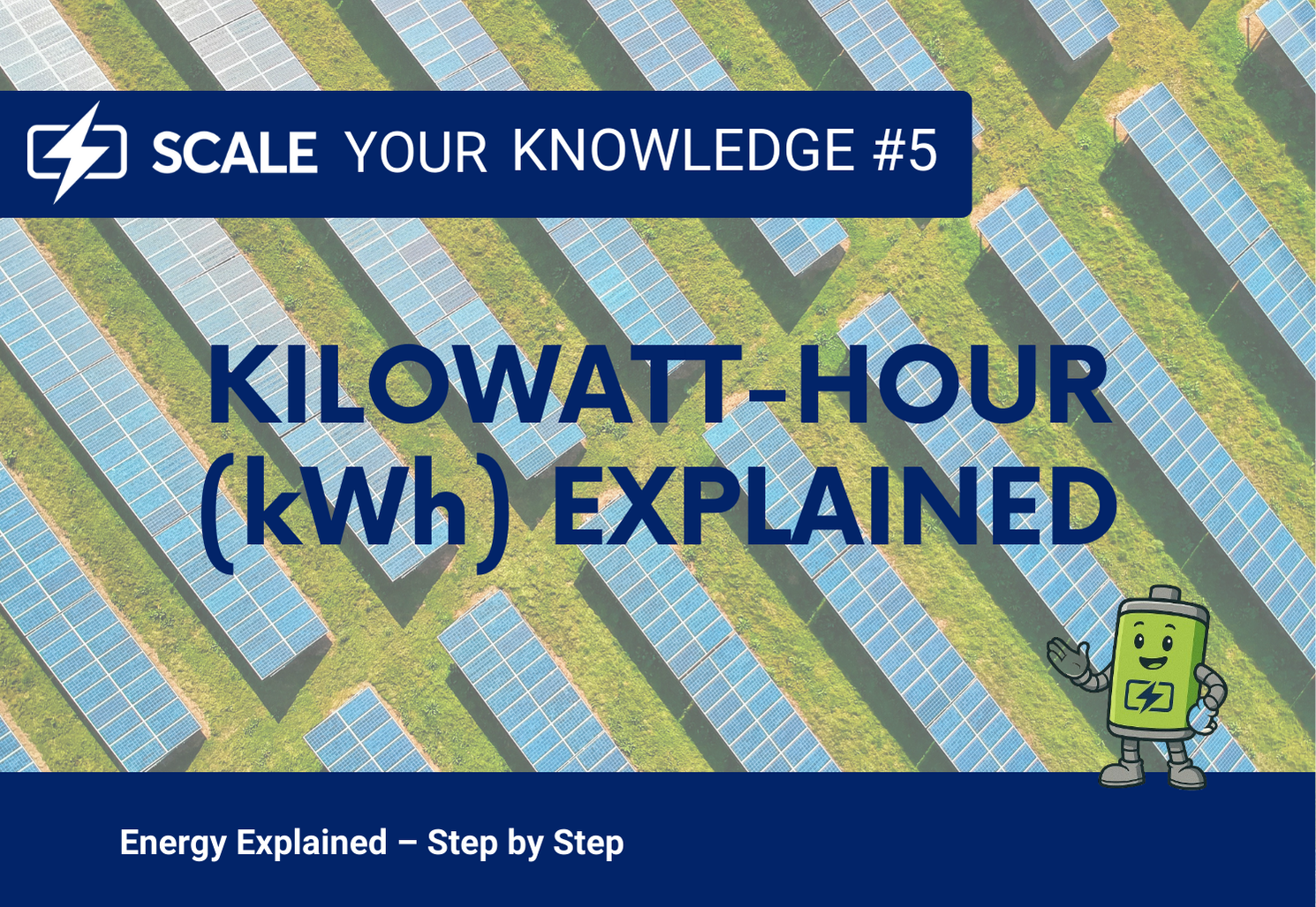News
Scale Your Knowledge #5 – What is a Kilowatt-Hour?

When you look at your electricity bill, one unit appears everywhere: kWh – the kilowatt-hour. But what does it actually mean, and why is it so important for understanding energy consumption and costs?
Power vs. Energy
The first step is to distinguish between power and energy. Power is measured in kilowatts (kW) and describes a snapshot – how much electricity a device needs at a given moment. Energy, on the other hand, is measured in kilowatt-hours (kWh) and shows how much electricity is consumed or generated over time.
Everyday Example
Take a light bulb with a power rating of 100 watts. If it runs for one hour, it consumes 0.1 kilowatt-hours (100 watts = 0.1 kilowatts × 1 hour = 0.1 kWh). A modern washing machine uses roughly 0.7 to 1.2 kWh per wash cycle. These examples help put personal consumption into perspective.
A Look at the Energy Sector
In energy production, the kilowatt-hour is also used as the basic unit. Whether it’s a wind farm, a solar array, or a coal-fired power plant – the amount of energy generated is expressed in kWh (or in millions and billions of kWh). This makes it possible to directly compare generation and consumption.
Example from the Energy Industry
A Battery Energy Storage System (BESS) with a capacity of 8 MWh = 8,000 kWh illustrates the scale at which the energy sector operates. With this amount of energy, the system can provide 8 MW of power for one hour – enough to support the electricity supply of an entire industrial site or a local distribution grid station. Such storage systems are essential for the integration of renewable energy, the stabilization of grid frequency, and the mitigation of peak loads. The kilowatt-hour remains the fundamental unit to indicate how much energy can be stored, shifted, or fed back into the grid.
Why is the kWh so important?
The kilowatt-hour is the central unit when it comes to electricity costs. Energy suppliers calculate usage in kWh and multiply it by the price per kWh. This determines the total on your electricity bill. Understanding which appliances consume how many kWh enables consumers to actively manage their energy use – and reduce costs.
A Look at the Energy Sector
The kilowatt-hour is also the standard measure for energy production. Whether it is a wind farm, a rooftop solar system, or a coal-fired power plant – output is expressed in kWh (or in millions and billions of kWh). This allows energy generation and consumption to be directly compared.
The kilowatt-hour is more than just a figure on your bill. It is the universal unit linking everyday life with the energy system – and a key to better understanding electricity use and costs.





